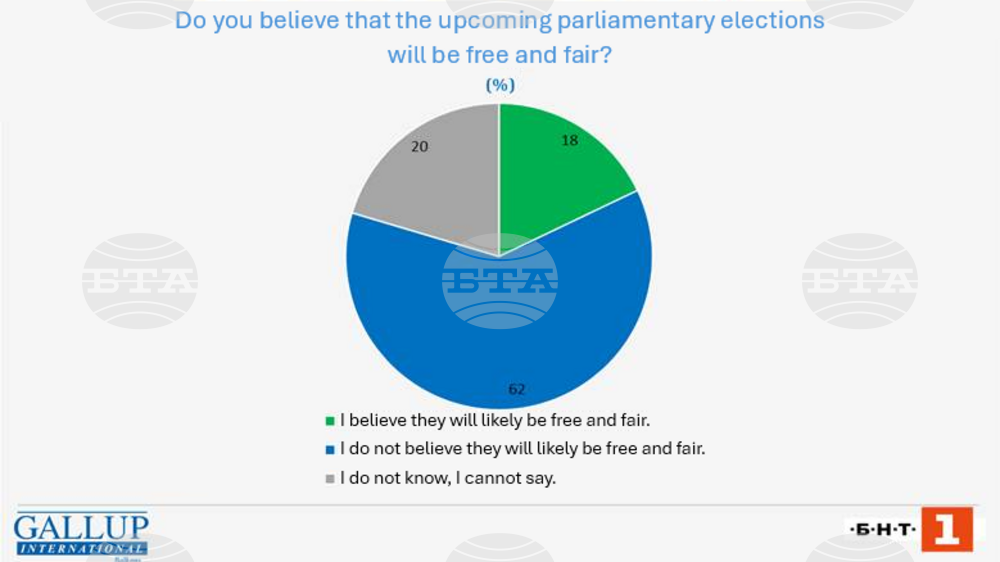site.bta10% Would Sell Their Vote, Trust in Fair Elections Declines - Poll


One in ten respondents in a Gallup International Balkans survey admitted they would vote in exchange for payment, incentives, or under duress before the election, 78% denied it, and 12% were undecided, Gallup reported on Friday.
Sociologists noted that while the sincerity of these responses might be questioned, the data provides a basis for analyzing the extent of the issue.
The study, commissioned by the Bulgarian National Television, took place from September 28 to October 6, 2024, involving 806 participants.
The 10% of voters who openly admit they would consider voting under such conditions translates to over 500,000 eligible voters nationwide. The number of people who might have concealed the truth in their responses is unclear, as well as the reasons behind the 12% who answered "I do not know." These figures are especially worrying in light of the declining voter turnout.
Gallup International Balkans noted that the issue of vote-buying and controlled voting typically gains attention before elections. This topic entered the political and public debate with particular intensity ahead of the seventh consecutive snap parliamentary elections. Reports from journalists, actions by the Ministry of Interior, and political disclosures have shed light on the depth of the problem, which is becoming more significant as voter turnout declines. In this context, public trust in political parties is increasingly eroded, and confidence in the elections themselves could also be at risk.
Groups that are most vulnerable to vote-buying or influence include people with lower education levels, low income, residents of small towns and villages, and the unemployed. One in four of respondents with primary or lower education levels gave affirmative responses. An even higher percentage of positive responses were given by respondents identifying as Roma.
Surveys by Gallup International Balkans conducted since 2019 indicate that attitudes on this issue remain consistent and are unaffected by changes in the political landscape.
Perceptions of the election's fairness are mostly negative. When asked if they believe the upcoming National Assembly elections will be free and fair, 62% of respondents said no, 18% were hopeful, and 20% were unsure. The polling agency remarked that the status quo is troubling given research trends over the past decade.
Supporters of parties likely to form a government and secure key roles in the National Assembly tend to have a more positive view of the fairness of the election process. However, even among these supporters, pessimism outweighs optimism. The data reflects a decrease in trust not only in political parties but also in the electoral rules governing the political system.
Comparing the attitudes of all respondents with those determined to vote reveals slightly less pessimism among voters. Regardless, 54% of respondents still think the election is unlikely to be free and fair.
Individuals are unlikely to participate in election procedures if they suspect the process is rigged. While people tend to trust their own integrity, there appears to be increasing scepticism that everyone is adhering to the same rules.
/IV/
news.modal.header
news.modal.text